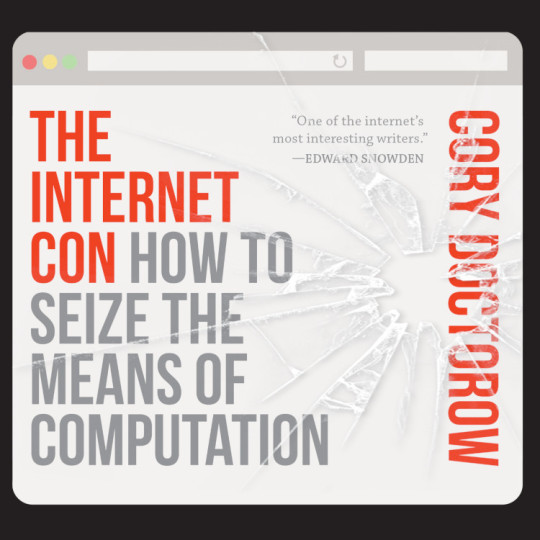#SAAS
Explore tagged Tumblr posts
Text

[link]
668 notes
·
View notes
Text
Shavuot is about the Jewish people signing the Terms & Conditions before reading them.
Every generation, however, gets patch updates and both the user manuals and technical documentation are incredibly detailed.
And excellent user support is available from specialists who have made it their life's work to study the documentation, Rabbis.
A good Rabbi will never just tell the user to RTFM.
341 notes
·
View notes
Text
Just as I have tried to make West Mexico interesting to others, this year at the Society for American Archaeology conference I will make bajareque more interesting. Catch me Friday morning at the Los Guachimontones session. I may look standoffish, but I promise you I will be extremely awkward and nervous.
217 notes
·
View notes
Text
Best WLW TV of 2023 Part 2

Robyn Hood

Monarch legacy of monsters


FROM

Yuri is my Job
youtube
Paper Dolls
The Lazarus Project

The Magical Revolution of the Reincarnated Princess and the Genius Young Lady
youtube
Saas, Bahu Aur Flamingo
youtube
Urban La Vida es Nuestra

I'm in Love with the Villainess

Invasion, apple tv

Beacon 23
youtube
Calle y Poche: Sin Etiquetas

The Afterparty
youtube
Love Allways
#Robyn Hood#monarch legacy of monsters#yuri is my job!#the lazarus project#The Magical Revolution of the Reincarnated Princess and the Genius Young Lady#I'm in Love with the Villainess#invasion#invasion apple tv#urban: la vida es nuestra#Saas#Bahu Aur Flamingo#Youtube#paper dolls#beacon 23#calle y poche#the afterparty#from epix#FROM#lesbian#gay#lgbt#lgbtq#wlw#bi#girls who like girls#lgbtqia#sapphic#lgbtqa+#Love Allways#tv
584 notes
·
View notes
Text
Cloudburst

Enshittification isn’t inevitable: under different conditions and constraints, the old, good internet could have given way to a new, good internet. Enshittification is the result of specific policy choices: encouraging monopolies; enabling high-speed, digital shell games; and blocking interoperability.
First we allowed companies to buy up their competitors. Google is the shining example here: having made one good product (search), they then fielded an essentially unbroken string of in-house flops, but it didn’t matter, because they were able to buy their way to glory: video, mobile, ad-tech, server management, docs, navigation…They’re not Willy Wonka’s idea factory, they’re Rich Uncle Pennybags, making up for their lack of invention by buying out everyone else:
https://locusmag.com/2022/03/cory-doctorow-vertically-challenged/
But this acquisition-fueled growth isn’t unique to tech. Every administration since Reagan (but not Biden! more on this later) has chipped away at antitrust enforcement, so that every sector has undergone an orgy of mergers, from athletic shoes to sea freight, eyeglasses to pro wrestling:
https://www.whitehouse.gov/cea/written-materials/2021/07/09/the-importance-of-competition-for-the-american-economy/
But tech is different, because digital is flexible in a way that analog can never be. Tech companies can “twiddle” the back-ends of their clouds to change the rules of the business from moment to moment, in a high-speed shell-game that can make it impossible to know what kind of deal you’re getting:
https://pluralistic.net/2023/02/27/knob-jockeys/#bros-be-twiddlin
To make things worse, users are banned from twiddling. The thicket of rules we call IP ensure that twiddling is only done against users, never for them. Reverse-engineering, scraping, bots — these can all be blocked with legal threats and suits and even criminal sanctions, even if they’re being done for legitimate purposes:
https://locusmag.com/2020/09/cory-doctorow-ip/
Enhittification isn’t inevitable but if we let companies buy all their competitors, if we let them twiddle us with every hour that God sends, if we make it illegal to twiddle back in self-defense, we will get twiddled to death. When a company can operate without the discipline of competition, nor of privacy law, nor of labor law, nor of fair trading law, with the US government standing by to punish any rival who alters the logic of their service, then enshittification is the utterly foreseeable outcome.
To understand how our technology gets distorted by these policy choices, consider “The Cloud.” Once, “the cloud” was just a white-board glyph, a way to show that some part of a software’s logic would touch some commodified, fungible, interchangeable appendage of the internet. Today, “The Cloud” is a flashing warning sign, the harbinger of enshittification.
When your image-editing tools live on your computer, your files are yours. But once Adobe moves your software to The Cloud, your critical, labor-intensive, unrecreatable images are purely contingent. At at time, without notice, Adobe can twiddle the back end and literally steal the colors out of your own files:
https://pluralistic.net/2022/10/28/fade-to-black/#trust-the-process
The finance sector loves The Cloud. Add “The Cloud” to a product and profits (money you get for selling something) can turn into rents (money you get for owning something). Profits can be eroded by competition, but rents are evergreen:
https://pluralistic.net/2023/07/24/rent-to-pwn/#kitt-is-a-demon
No wonder The Cloud has seeped into every corner of our lives. Remember your first iPod? Adding music to it was trivial: double click any music file to import it into iTunes, then plug in your iPod and presto, synched! Today, even sophisticated technology users struggle to “side load” files onto their mobile devices. Instead, the mobile duopoly — Apple and Google, who bought their way to mobile glory and have converged on the same rent-seeking business practices, down to the percentages they charge — want you to get your files from The Cloud, via their apps. This isn’t for technological reasons, it’s a business imperative: 30% of every transaction that involves an app gets creamed off by either Apple or Google in pure rents:
https://www.kickstarter.com/projects/doctorow/red-team-blues-another-audiobook-that-amazon-wont-sell/posts/3788112
And yet, The Cloud is undeniably useful. Having your files synch across multiple devices, including your collaborators’ devices, with built-in tools for resolving conflicting changes, is amazing. Indeed, this feat is the holy grail of networked tools, because it’s how programmers write all the software we use, including software in The Cloud.
If you want to know how good a tool can be, just look at the tools that toolsmiths use. With “source control” — the software programmers use to collaboratively write software — we get a very different vision of how The Cloud could operate. Indeed, modern source control doesn’t use The Cloud at all. Programmers’ workflow doesn’t break if they can’t access the internet, and if the company that provides their source control servers goes away, it’s simplicity itself to move onto another server provider.
This isn’t The Cloud, it’s just “the cloud” — that whiteboard glyph from the days of the old, good internet — freely interchangeable, eminently fungible, disposable and replaceable. For a tool like git, Github is just one possible synchronization point among many, all of which have a workflow whereby programmers’ computers automatically make local copies of all relevant data and periodically lob it back up to one or more servers, resolving conflicting edits through a process that is also largely automated.
There’s a name for this model: it’s called “Local First” computing, which is computing that starts from the presumption that the user and their device is the most important element of the system. Networked servers are dumb pipes and dumb storage, a nice-to-have that fails gracefully when it’s not available.
The data structures of source-code are among the most complicated formats we have; if we can do this for code, we can do it for spreadsheets, word-processing files, slide-decks, even edit-decision-lists for video and audio projects. If local-first computing can work for programmers writing code, it can work for the programs those programmers write.
Local-first computing is experiencing a renaissance. Writing for Wired, Gregory Barber traces the history of the movement, starting with the French computer scientist Marc Shapiro, who helped develop the theory of “Conflict-Free Replicated Data” — a way to synchronize data after multiple people edit it — two decades ago:
https://www.wired.com/story/the-cloud-is-a-prison-can-the-local-first-software-movement-set-us-free/
Shapiro and his co-author Nuno Preguiça envisioned CFRD as the building block of a new generation of P2P collaboration tools that weren’t exactly serverless, but which also didn’t rely on servers as the lynchpin of their operation. They published a technical paper that, while exiting, was largely drowned out by the release of GoogleDocs (based on technology built by a company that Google bought, not something Google made in-house).
Shapiro and Preguiça’s work got fresh interest with the 2019 publication of “Local-First Software: You Own Your Data, in spite of the Cloud,” a viral whitepaper-cum-manifesto from a quartet of computer scientists associated with Cambridge University and Ink and Switch, a self-described “industrial research lab”:
https://www.inkandswitch.com/local-first/static/local-first.pdf
The paper describes how its authors — Martin Kleppmann, Adam Wiggins, Peter van Hardenberg and Mark McGranaghan — prototyped and tested a bunch of simple local-first collaboration tools built on CFRD algorithms, with the goal of “network optional…seamless collaboration.” The results are impressive, if nascent. Conflicting edits were simpler to resolve than the authors anticipated, and users found URLs to be a good, intuitive way of sharing documents. The biggest hurdles are relatively minor, like managing large amounts of change-data associated with shared files.
Just as importantly, the paper makes the case for why you’d want to switch to local-first computing. The Cloud is not reliable. Companies like Evernote don’t last forever — they can disappear in an eyeblink, and take your data with them:
https://www.theverge.com/2023/7/9/23789012/evernote-layoff-us-staff-bending-spoons-note-taking-app
Google isn’t likely to disappear any time soon, but Google is a graduate of the Darth Vader MBA program (“I have altered the deal, pray I don’t alter it any further”) and notorious for shuttering its products, even beloved ones like Google Reader:
https://www.theverge.com/23778253/google-reader-death-2013-rss-social
And while the authors don’t mention it, Google is also prone to simply kicking people off all its services, costing them their phone numbers, email addresses, photos, document archives and more:
https://pluralistic.net/2022/08/22/allopathic-risk/#snitches-get-stitches
There is enormous enthusiasm among developers for local-first application design, which is only natural. After all, companies that use The Cloud go to great lengths to make it just “the cloud,” using containerization to simplify hopping from one cloud provider to another in a bid to stave off lock-in from their cloud providers and the enshittification that inevitably follows.
The nimbleness of containerization acts as a disciplining force on cloud providers when they deal with their business customers: disciplined by the threat of losing money, cloud companies are incentivized to treat those customers better. The companies we deal with as end-users know exactly how bad it gets when a tech company can impose high switching costs on you and then turn the screws until things are almost-but-not-quite so bad that you bolt for the doors. They devote fantastic effort to making sure that never happens to them — and that they can always do that to you.
Interoperability — the ability to leave one service for another — is technology’s secret weapon, the thing that ensures that users can turn The Cloud into “the cloud,” a humble whiteboard glyph that you can erase and redraw whenever it suits you. It’s the greatest hedge we have against enshittification, so small wonder that Big Tech has spent decades using interop to clobber their competitors, and lobbying to make it illegal to use interop against them:
https://locusmag.com/2019/01/cory-doctorow-disruption-for-thee-but-not-for-me/
Getting interop back is a hard slog, but it’s also our best shot at creating a new, good internet that lives up the promise of the old, good internet. In my next book, The Internet Con: How to Seize the Means of Computation (Verso Books, Sept 5), I set out a program fro disenshittifying the internet:
https://www.versobooks.com/products/3035-the-internet-con
The book is up for pre-order on Kickstarter now, along with an independent, DRM-free audiobooks (DRM-free media is the content-layer equivalent of containerized services — you can move them into or out of any app you want):
http://seizethemeansofcomputation.org
Meanwhile, Lina Khan, the FTC and the DoJ Antitrust Division are taking steps to halt the economic side of enshittification, publishing new merger guidelines that will ban the kind of anticompetitive merger that let Big Tech buy its way to glory:
https://www.theatlantic.com/ideas/archive/2023/07/biden-administration-corporate-merger-antitrust-guidelines/674779/
The internet doesn’t have to be enshittified, and it’s not too late to disenshittify it. Indeed — the same forces that enshittified the internet — monopoly mergers, a privacy and labor free-for-all, prohibitions on user-side twiddling — have enshittified everything from cars to powered wheelchairs. Not only should we fight enshittification — we must.

Back my anti-enshittification Kickstarter here!

If you’d like an essay-formatted version of this post to read or share, here’s a link to it on pluralistic.net, my surveillance-free, ad- free, tracker-free blog:
https://pluralistic.net/2023/08/03/there-is-no-cloud/#only-other-peoples-computers

Image: Drahtlos (modified) https://commons.wikimedia.org/wiki/File:Motherboard_Intel_386.jpg
CC BY-SA 4.0 https://creativecommons.org/licenses/by-sa/4.0/deed.en
—
cdsessums (modified) https://commons.wikimedia.org/wiki/File:Monsoon_Season_Flagstaff_AZ_clouds_storm.jpg
CC BY-SA 2.0 https://creativecommons.org/licenses/by-sa/2.0/deed.en
#pluralistic#web3#darth vader mba#conflict-free replicated data#CRDT#computer science#saas#Mark McGranaghan#Adam Wiggins#evernote#git#local-first computing#the cloud#cloud computing#enshittification#technological self-determination#Martin Kleppmann#Peter van Hardenberg
890 notes
·
View notes
Text
Business Annotator Tool
Empower your decision-making! Automatically mark essential business terms for enhanced clarity and efficiency in your analysis—ideal for leaders and professionals.
27 notes
·
View notes
Text

St. Peter’s Basilica, Vatican City by vtarnini
* * * * *
I asked my son, raised in the Christian Church and no longer a believer what Christmas meant to him now at this point in his life [he's 40] and he said, "Gods are born every day."
[alive on all channels]
18 notes
·
View notes
Text

CHiCKEN JOCKEY!?!?!?!?🏇 🐓🧟♂️
13 notes
·
View notes
Text

7 notes
·
View notes
Text
My sister, who spent four years at Mailchimp, just got laid off yesterday. She called me sobbing to let me know she got the email. No amount of a fat severance package can fix the damage to her psyche this job did imo. Her birthday is coming up soon. So i made her this cake.



(i only decorate a cake like once every few years lol don't come for me)
She started in customer support, and sure enough was skilled and talented enough in apprenticeships with a higher up team in a different department that she was happily brought onto the team.
She ran events, improved entire workflows that saved the company thousands of dollars, delivered tasks on time and of high quality, and was highly praised by leaders of other teams and from those above her boss. She kicked ass and took names.
On that team, she spent two years experiencing bullying and discrimination for having ADHD. Yes, arguably the most common ND condition out there just about. She had to take 2 months off for mental health leave to get her ADHD diagnosis to defend herself from all the corporate bullying. She documented her boss literally making things up and her coworker refusing to communicate with her and then blaming her for things not being done how she wanted. They actively ignored all the times she went above and beyond expectations and all the times she did receive praise from other teams. I watched two corporate goons crush the confidence my sister had finally closed together for herself.
The CEO of Intuit called her and 1800 other employees that were laid off "low performers" in a public statement. A convenient 10% of Mailchimp was completely laid off. We knew this was coming because over the past year or so, Intuit has been forcing managers to label a specific percentage of people as "Does Not Meet Expectations" on year end reviews to justify letting people go, no matter how much they actually did meet expectations.
I look in the Intuit Mailchimp tags and only see one post about them Union busting. The only posts are just geared towards companies comparing and contrasting products and marketing strategies. Reddit isn't much better because the only sub on there is the official one modded by MC themselves. This isn't the biggest fire rn by any means but it's once again proof that the people behind these corporations are as soulless and evil as the corporations themselves. No matter how much good you do they will never appreciate you.
I hope the company eats shit and dies. Intuit is ruining everything people liked about MC, from the product to the culture. Fuck you.
#mailchimp#Intuit#intuit Mailchimp#corporate greed#discrimination#Fuck Intuit#Fuck Mailchimp#email marketing#neurodivergiant#adhd#workplace bullying#personal#cake decorating#happy birthday my beloved sissy. you deserve better#ilysm#turbotax#quickbooks#saas#saas technology#tech#tech industry#layoffs#credit karma#mint#eat the rich
25 notes
·
View notes
Text
16 notes
·
View notes
Text
You can try my website to find the leads using AI, with a B2B database of over 700M contacts and 100M companies.Futern Lead generation
9 notes
·
View notes
Text
Why DevOps Implementation Is More Than Just Tools and Automation?
DevOps Implementation Services

Many companies assume that DevOps Implementation is simply about using the latest tools or the resources and setting up automation scripts. While tools and automation are important, they only scratch the surface of what DevOps truly means. A successful DevOps transformation requires a shift in mindset, team collaboration, processes, and culture.
DevOps: A Culture, Not Just a Toolkit
DevOps is fundamentally known to state breaking down silos between development and operations teams. As it encourages shared responsibility, faster feedback, and continuous improvement. Merely introducing CI/CD tools, containerization, or monitoring platforms without changing how teams collaborate often leads to disappointment.
Real DevOps Implementation focuses on:
Collaboration: Developers, testers, and operations working as one team
Communication: Clear and frequent updates between departments
Ownership: Teams owning their code from development to deployment
Feedback Loops: Rapid feedback from users and systems to improve quickly
The Human Element of DevOps
Technology can only take you so far. For DevOps to work, people need to adopt a DevOps mindset. This includes trusting each other, sharing goals, and embracing continuous learning. Training, leadership support, and cross-functional team structures are just as important as any automation script.
Process Overhaul, Not Just Toolchain Setup
DevOps requires changes in workflows—like introducing Agile methodologies, using smaller releases, prioritizing testing early, and adopting infrastructure as code. Tools enable these changes, but they don’t enforce them. The true power of DevOps comes when the process becomes more streamlined and teams are aligned around a common goal: delivering high-quality software faster.
Why a One-Size-Fits-All Approach Doesn’t Work
Every organization has different goals and common objectives, team structures, and legacy systems. That’s why cookie-cutter DevOps solutions often fall short or low. A truly effective DevOps Implementation must be customized to fit your business’s unique needs and maturity level. Whether it’s choosing the right CI/CD strategy, integrating security (DevSecOps), or training internal teams, personalization is key. Partnering with the right consulting team or the partner ensures you implement DevOps in a way that drives measurable business value—not just technical improvement.
Get Expert assistance with DevOps Implementation -
Companies like Suma Soft, IBM, and Cyntexa understand and are the professionals in their field for DevOps Implementation is a journey, not a one-time setup. Their experts help businesses design tailored DevOps strategies that combine automation tools with cultural transformation, process alignment, and ongoing support. With the right guidance, you can turn DevOps from a buzzword into a competitive advantage.
#it services#technology#saas#software#saas development company#saas technology#digital transformation#usa#canada
3 notes
·
View notes
Text
I haven't put this up on Academia.edu or ResearchGate.net yet because the Internet in Teuchitlan is being really slow. But here's a Google Drive link to the text followed by the slides.
Enjoy!
45 notes
·
View notes
Text

The search for top talent just got easier. Zeero’s latest placements prove we’re ready to deliver the best — Data Engineers, Data Scientists, Project Managers, and Solution Architects.
Don’t miss the chance to work with the game-changers of tomorrow.
2 notes
·
View notes